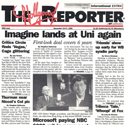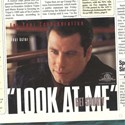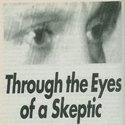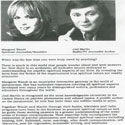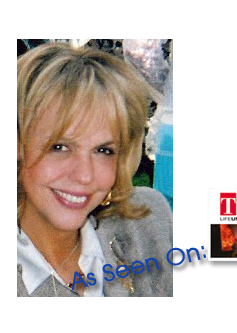

You will need to have Adobe Acrobat Reader installed to view the UFO articles. Download it from here.
Articles
Dreams and disaster happening at the same time.

Dr. Antonio de Nicolas' brother has just been elected the 30th Superior General of the Society of Jesus! History is made! Click here.
New superior urges Jesuits to strengthen service to poor. Click Here
Province Express - Father Adolfo Nicol�s. Click Here
- Is a New Eugenics Afoot? by Garland E. Allen
- The 1929 Arab Terror Attack: When Hebron Became Occupied Territory by Sammy Benoit
- "Saturn enters Libra"
- 'I am sorry,' Cardinal Mahony says amid new priest abuse details
- 04/07/08 We are all African
- 04/23/08 Moody's Blues
- 05/06/08 Lunacy and Freedom
- 05/10/08 It's not easy being Green, or even truthful it would seem
- 05/21/08 Shareholder Value
- 05/26/08 Senator Clinton, Fear, and Assassination
- 06/02/08 The Lesson Derived From Derivatives
- 06/12/08 The Price of Ice Cream
- 06/23/08 The Market
- 06/25/08 Getting Hit By A Bus
- 07/11/08 Being Right
- 07/18/08 Einstein
- 07/18/08 Karma
- 07/21/08 Ecology, Security and Economics
- 08/01/08 Who We Have Been Waiting For
- 08/11/08 From The Head To The Heart
- 08/20/08 Incarceration
- 08/28/08 Frick and Frack
- 09/10/08 Worrying
- 09/17/08 Taxpayer Bailout
- 10/16/08 Deleveraging
- 11/23/08 Too Big to Survive
- 11/24/08 Getting Hit By a Bus
- 2014: Sag New Moon --Change that perspective-NOW!
- 2024 Capricorn New Moon: Let's Get Your Cap On!
- 2nd Aquarius New Moon: 2015
- ACE OF CUPS
- ACE OF PENTACLES
- ACE-OF-SWORDS
- ACE-OF-WANDS
- After Lehman
- Amazing New Video -- The 2012 Enigma! by David Wilcock
- An Extraordinary Astrological Recapitulation by Brian McNaughton
- And now it is the Second Cancer New Moon!
- Aqaurius New Moon 2011--The New Quilting BEE!
- Aquarius New Moon 2010! It is a strange trip
- Aquarius New Moon 2012!
- Aquarius New Moon 2014 - You LikeMind me.
- Aquarius New Moon 2015 - The Zero One
- Aquarius New Moon 2016: Get Your Tribe On
- Aquarius New Moon 2017: Out of the chaos we find our Peeps.
- aquarius New Moon 2017: Out of the chaos we find our Peeps.
- Aquarius New Moon 2017: Out of The Chaos We Find our Peeps!!
- Aquarius New Moon 2018: Friends & Communities
- Aquarius New Moon 2019: No Time or Place for Emotions
- Aquarius New Moon 2020: Expect the Unexpected
- Aquarius New Moon 2021 Your Place in the Community
- Aquarius New Moon 2022: Loneliness or Circles? Your choice!
- Aquarius New Moon 2023: Wear Your Weird
- Aquarius New Moon 2024: Pluto is Getting Our Attention
- Aquarius New Moon 2025
- Aquarius New Moon--Unique Solutions if you are willing
- ARCHANGEL MICAHEL: SOUL'S JOURNEY
- ARCHANGEL MICHAEL: FAMILY AND FRIENDS
- Archangel Michael: INTENTIONS
- ARCHANGEL URIEL: STRESS
- Archangels: Stress
- Aries New Moon #1 March 2023
- Aries New Moon #2 - April 19th 2023 PDT
- Aries New Moon - It will be a great Treasure Map time!
- Aries New Moon 2009---IT’S A BIG ONE!
- Aries New Moon 2010--Let's get this party started!
- Aries New Moon 2012: You rule!
- Aries New Moon 2014 Get out of the way! Your Life is Coming
- Aries New Moon 2016: Light this rocket!
- Aries New Moon 2017
- Aries New Moon 2018: What Are Your Instincts Telling You?
- Aries New Moon 2019: Patience. Yes. That Word.
- Aries New Moon 2020: Survival
- Aries New Moon 2021: Heart Driven Changes
- Aries New Moon 2022: Finding Self Now!
- Aries New Moon 2024 Total Solar Eclipse - Wow.
- Aries New Moon 2025: A New Beginning for All
- Aries New Moon! (2008) by Tracy Cook
- Aries New Moon, 2011- Yes it is a big one!
- Article by Jock Brocas
- Back on Uncle Sam's Plantation
- Being Frugal and Benefiting
- Biomass-Eating Military Robot Is a Vegetarian, Company Says
- Bob Dylan: Like a Complete Unknown by Ron Radosh
- Books mentioned in Brian Hurst's broadcasts
- Britain Hired Astrologer to Fight Hitler
- Buddhism and the End of Economic Growth by John Stanley & David Loy
- Cancer Eclipse & New Moon 2019: Your Emotions Will Guide You
- Cancer New Moon & The Grand Cross
- Cancer New Moon --The Great Healing by Tracy Cook
- Cancer New Moon 2010---Your feelings have answers
- Cancer New Moon 2012 - "It's the flow, Baby!"
- Cancer New Moon 2014: REFRESH!
- Cancer New Moon 2016: Let It Flow
- Cancer New Moon 2017: Are your emotions flowing? Good.
- Cancer New Moon 2023: Ride the Rapids
- Cancer New Moon 2024: Emotions, Feelings and Needs- Oh, My!
- Cancer New Moon Solar Eclipse June 20, 2020
- Cancer New Moon--The first of two (2009)
- Cancer New Moon-Ready, Set, Emote! July, 14th 2007 by Tracy Cook
- Cancer New Moon: 2013
- Cancer New Moon: 2022 - Emotions Guide Us To Our Heart
- Cancer New Moon: Don't make me go find your roots...you do it!
- Cancer New Moon: Feelings. Emotions. Passion. 2021
- Cancer Solar Eclipse 2018
- Capricorn 2010 NEW MOON--Taking Care of Business!
- Capricorn 2011-Aim your ambition-NOW
- Capricorn New Moon - Get Serious!
- Capricorn New Moon 2011 -Be the authority and move up!
- Capricorn New Moon 2013: Pragmatic and no excuses
- Capricorn New Moon 2014
- Capricorn NEW MOON 2016 ...Get Real!
- Capricorn New Moon 2018
- Capricorn New Moon 2019 - Pragmatism Pragmatism Pragmatism
- Capricorn New Moon 2019: Focused and Disciplined
- Capricorn New Moon 2019: Focused and Disciplined
- Capricorn New Moon 2021. Climb Like a Goat
- Capricorn New Moon 2022: Climb Heights
- Capricorn New Moon 2025 Ambition for You
- Capricorn New Moon Dec 2022: CEO of Values
- Capricorn New Moon: Slow and sensible is a-okay.
- Children Skipping Childhood
- Clean your Slate Capricorn New Moon! by Tracy Cook
- Compliments Do You Get Enough Of Them?
- David Kaiser from MIT, not David Kaiser from the Naval War College
- Detach From Rescuing
- Did Yale prostitute itself for oil money? by Ethel C. Fenig
- Do I Remember Differently Than Another Does?
- Do you feel good about where you live? by Jill Saint James
- Dreaming on Pisces New Moon by Tracy Cook
- ECSTASY
- Energetic Health Food By Eva Sanchez,N.D.
- Face The Music
- Fox Blowviator Bill O'Reilly wants you to hate him
- GEMINI NEW MOON 2011 –“Can someone turn on the air, please?”
- Gemini Eclipse New Moon 2021: Fact versus Fiction and Pivot !
- Gemini New Moon (2012)- Second time's the charm
- Gemini New Moon 2009---The Fast and Furious Talker
- Gemini New Moon 2010: A Tornado among us!
- Gemini New Moon 2013
- Gemini New Moon 2014: The power of light feet
- Gemini New Moon 2014: The power of light feet
- Gemini New Moon 2018 - Thoughts!
- Gemini New Moon 2019: Mix it up & Adapt
- Gemini New Moon 2020: Reboot Your Inner Computer
- Gemini New Moon 2022: Process the Information
- Gemini New Moon 2023: Fuzzy Data But Still Informs
- Gemini New Moon 2024: Cha-Cha-Cha-ing
- Gemini New Moon by Tracy Cook
- Gemini New Moon-- Reach out! Mix it Up!
- Gemini New Moon--the first round- 2012
- Gemini New Moon. Mental Exercises 2015
- Gemini New Moon. Mental Exercises 2015
- Gemini New Moon: Question and Shift
- Gemini- New Moon 2008-- Ready to Connect! by Tracy Cook
- Get out of the way---LEO NEW MOON is HERE!
- Get your Viking on--Aries New Moon 2013
- Getting the Scoop by Janet Donovan
- Glossary of Number Values
- God + Faith by Margaret Wendt
- God Heard The Need
- Headaches are Telling You Something by Eva Sanchez, N.D.
- Heart Ethics by Way of Introduction by Dr. Antonio T. de Nicolas, PHD
- Hi Ho Silver!!
- History Unfolding by David Kaiser
- How American corporate philanthropies launched a national campaign of ethnic cleansing in the United States, helped found and fund the Nazi eugenics of Hitler and Mengele — and then created the modern movement of "human genetics." by Edwin Black
- How to sit with a medium
- I Forgot To Accept The Things I Can Not Change
- I Want Your Help, I’m An Atheist
- In a generation or two, the US will ask itself: "Who lost Europe?"
- In fallout from crisis, rethinking risk and human judgment by Lynnley Browning
- Incredible information and facts about the paranormal and publishing
- Is A Shift Needed in Parenting Values?
- Is Your Community Antisocial?
- It is all a balancing act, Baby! Libra new moon 2008
- Jess Stearn
- JFK Junior - John Jr. by Sloan Bella
- Jon Bennett Ramsey by Sloan Bella
- Keeping a Tally Sheet
- Kurt Cobain - Celebrity Channel by Sloan Bella
- Learn about Boundaries
- Lemon for Lymph By Eva Sanchez N.D.
- LEO 2008 New Moon--Sunny side of the street by Tracy Cook
- Leo New Moon - Round two & Solar Eclipse 2017
- Leo New Moon - The First One! 2017
- Leo New Moon - The First One! 2017
- Leo New Moon - To be bold or not to be bold? That is the question
- Leo New Moon 2011--Your passion tells you so
- Leo New Moon 2012--The Heart Wants To Thrive
- Leo New Moon 2013: Be Big. Be Very Big
- Leo New Moon 2015: Learn from the Lion!
- LEO NEW MOON 2016: Dare to find Joy & Strength
- Leo New Moon 2019: Be Special, dang it!
- Leo New Moon 2020: Put on Your Sloppy Cape
- Leo New Moon 2023 - 29 Days of Brave
- Leo New Moon 2024: Love, Strength and Courage
- Leo New Moon Eclipse 2018
- Leo New Moon: 2021 - Find Your Authentic Heart
- leo New Moon: 2021 - Find Your Authentic Heart
- Leo New Moon: 2022 - Be YOU.
- Leo's in the House..Roar! Sort of.. by Tracy Cook
- Libra New Moon (2007) by Tracy Cook
- Libra New Moon -How do you relate? Does it serve you?
- Libra New Moon 2009--The business of relating
- Libra New Moon 2012-
- Libra New Moon 2013 -- Balance That!
- Libra New Moon 2014: Let's really get our Libra on this time
- Libra New Moon 2015: Get your relationships straightened out
- Libra New Moon 2016: The Power of Negotiation
- Libra New Moon 2017: Not as light as you think
- Libra New Moon 2018: Power & Negotiations & Self Worth. Repeat.
- Libra New Moon 2019: Your Identity, My Identity & An Oxygen Mask
- Libra New Moon 2020: Bumpy. Power. Kindness. Repeat.
- Libra New Moon 2021: Where's your balance?
- Libra New Moon 2022 : How are your relating skills?
- Libra New Moon Eclipse 2023
- Libra New Moon Eclipse 2024: What's That Zagging?
- Look In My Eyes
- Love in the Land of Loneliness by Joseph Dispenza
- Marilyn Monroe - June 2004 - Celebrity Channel by Sloan Bella
- MAY GOD BLESS THIS AIRLINE CAPTAIN
- Me Controlling
- Meditation: The Making of Images By Antonio T. de Nicolas, PhD
- Mindy Sommers
- Mirror Mirror On The Wall
- My Global Warming Epiphany by Randall Hoven
- Narcissistic Behavior Is Increasing
- Neediness
- Nevins Rules by Julie Salamon
- New Moon in Aquarius 2013 Pull out your lightening rod-hits are coming
- New Moon in Virgo--Now you can fix your life
- New Moon Leo 2010--Wish upon a star--"Hey, that's me!"
- No One Mention The War!
- Pass The Buck
- Patience is a Virtue
- Pisces 2021 New Moon - All We Need is Love
- Pisces New Moon 2010--The LEAP of FAITH
- Pisces New Moon 2012: What is Dissolving?
- Pisces New Moon 2013 -Get in the flow
- Pisces New Moon 2014: Go for the Flow
- Pisces New Moon 2015
- Pisces New Moon 2016: Karma and Elevation
- Pisces New Moon 2017 -- The Big Release and Melt
- Pisces New Moon 2018: Intuition Speaks Are You Hearing It?
- Pisces New Moon 2019: Dazed and Confused --Thank You For It
- Pisces New Moon 2020: Time to Get Quiet
- Pisces New Moon 2022: Finding the Inner World
- Pisces New Moon 2023: Beep!
- Pisces New Moon 2024: Connecting to Bigger
- Pisces New Moon 2025: Unplug and Replenish
- Pisces New Moon---Mystics Apply
- Pisces New Moon--Dive or wash up on shore, it is your choice!
- Private Space Is Healing
- Psychic portraits of the Bangs Sisters
- Psychics, Mediums, and Rock N Roll
- Raymond Moody
- Re-wounding
- Re: Mars turns retrograde as Jupiter conjuncts Neptune on the Winter Solstice
- Re: Planetary Forecasting Methods for Traders
- Re: Saturn turns retrograde; Solar Eclipse; Mercury turns direct; Jupiter enters Pisces
- RESPOND TO RESPONSIBILTY-CAPRICORN NEW MOON 2008
- Responsibility Came From Being Told No
- Robert Monroe
- Sag New Moon 2010-- Ready, Aim---Change!
- Sag New Moon 2012 - A time to get real
- Sag New Moon 2021 Total Eclipse
- Sag New Moon 2023: Bits of Joy is still Joy
- Sag New Moon Total Eclipse 2020: The Truth is in The Mirror
- Sag New Moon---All Vision without the Hype!
- Sagittarius New Moon 2009--Ready, Aim, Adjust...Fire, Adjust, Aim, Ready..
- Sagittarius New Moon 2013 - Forward Ho!
- Sagittarius New Moon 2015: The Adventure!
- Sagittarius New Moon 2016: Get Wise Get Inspired
- Sagittarius New Moon 2017 - On Top of The Galactic Center
- Sagittarius New Moon 2018 - Get Inspired. Now!
- Sagittarius New Moon 2019: Hot & Cold Wisdom
- Sagittarius New Moon 2024: Finding The Way
- Sagittarius New Moon--Mother Knows Best
- Scorpio New Moon (2017) : Act Like a Plumber!!
- Scorpio New MOON 2009-Resources and Community--Where do I fit?
- Scorpio New Moon 2010-Jump in the water!
- Scorpio New moon 2012: Suit up and Commit
- Scorpio New Moon 2015
- Scorpio New Moon 2016: Release the death grip
- Scorpio New Moon 2018 - Rejuvenate!
- Scorpio New Moon 2019 - Shocked to Vulnerability
- Scorpio New Moon 2020: Dig Deep & Get Rid of Debris
- Scorpio New Moon 2023: Depth & Release
- Scorpio New Moon 2024: Tapping Power & Getting Unstuck
- Scorpio NEW MOON by Tracy Cook
- Scorpio New Moon Solar Eclipse SHED! SHED!SHED!
- Scorpio New Moon(2011)--DNA, Survival and ditching Garbage
- Scorpio New Moon: Get Your Plumbers Butt On!
- scorpio New Moon: Get your Plumbers Butt on!
- Scorpio New Moon: Solar Eclipse 2014
- scorpio New Moon: Solar Eclipse 2015
- Scorpio Solar Eclipse New Moon 2022: Release. Got it?
- Second Cancer New Moon 2020
- Sharia rejects all fundamental premises
- Speaking From Experience
- Speech by Lou Pritchett
- SURE RELATIONSHIPS BITE--BUT WE'RE ALL HUNGRY. Libra New Moon 2010
- Taurus New Moon 2008!
- Taurus New Moon 2010-----And so we begin.......
- Taurus New Moon 2011--Build upon it!
- TAURUS NEW MOON 2012 --What do you value?
- Taurus New Moon 2017: Practicality for a Personal Revolution
- Taurus New Moon 2018: Making Changes Bit by Bit
- Taurus New Moon 2019: Feel The Changes
- Taurus New Moon 2020: The rest of the year and being practical
- Taurus New Moon 2021. Slow down and find your values.
- Taurus New Moon 2022: Our Resources, our Love our Values!
- Taurus New Moon 2024: The Power of Slowing Down
- Taurus New Moon Eclipse: Yes you can make the changes!
- Taurus New Moon. Getting Practical ..Seriously, for real
- Taurus New Moon: May 19 The Glory of Practicality!
- Taurus New Moon: 2025 - Finding Stability In Extraordinary Times
- Taurus New Moon: Take the short route between A&B
- Taurus to the RESCUE!
- TaurusNewMoon 2014--Building Good bit by bit
- The Alinskyite's Big, Fat Governance Failure by Kyle-Anne Shiver
- The collapse of the U.S. Dollar and Federal Reserve? by Ted Phillips
- The coming collapse of the U.S. Dollar and Federal Reserve?
- The Consoling Angel by Antonio de Nicolas
- THE EMPEROR
- THE EMPRESS
- THE FOOL- MAJOR ARCANA
- The Ghosts on Moaning Mountain
- THE HEIROPHANT
- THE HIGH PRIESTESS
- The Horrifying American Roots of Nazi Eugenics by Edwin Black
- THE MAGICIAN- MAJOR ARCANA
- The Most Important Astrological Chart for Your Financial Security
- The Nightmare of Rationing in Oregon by Jeff Emanuel
- The Price of Ice Cream by Bill Sharon
- The Promise of the Past by Betty J. Kovács, Ph.D.
- The Reincarnation of Edgar Cayce and His Soul Group? - You Decide.
- The Sea has changed---SCORPIO NEW MOON 2008
- The Shadow and Karma
- The Spiritual Candle
- The Thieves of Happiness
- There she blows!!! SAG NEW MOON is HERE! by Tracy Cook
- Thomas Edison's Paranormal Personality by Margaret Wendt
- Thomas J. Curry must Leave Santa Barbara
- Tick Tock Virgo New Moon Strikes the Clock....2008
- Time To Connect With Like Minds
- Too Much Of A Good Thing....Is It Really Wonderful?
- Treasure Mapping by Tracy Cook
- Verbal Abuse Hurts
- Virgo 2018 New Moon - A Hero's Journey
- Virgo 2019 New Moon - A Car Full of Nerves
- Virgo New Moon - Your daily life is YOU. How is it going?
- VIRGO NEW MOON --GET YOUR MICRO ON!
- Virgo New Moon 2011- Help & Work serve you!
- Virgo New Moon 2012: Sweating the Small Stuff
- Virgo New Moon 2013: A Big Opportunity
- Virgo New Moon 2016 - What's that stuff in your schedule?
- Virgo New Moon 2017: Skills Needed! Please Apply
- Virgo New Moon 2021: Daily efforts build your life
- Virgo New Moon 2022: Don't be a burnt out Roomba
- Virgo New Moon 2023: Keep Your Head Down & Do The Work
- Virgo New Moon by Tracy Cook
- Virgo New Moon--Details Rule
- Virgo New Moon: 2020 - Every choice is yours
- Virgo New Moon: 2024 - Control Your Future By Your Schedule
- Vowels by Jill Saint James
- What Does Cutting Back On Expenses Mean To You?
- What Is A Distraction?
- What To Do This Taurus New Moon by Tracy Cook
- Where have all of the leaders gone? by Lee Iacocca
- Who Has Time To Read?
- You Feel Their Pain
- You had me at Hello, Aquarius New Moon by Tracy Cook
- You Lose Out When You Judge a Book by Its Cover
- You Make The Choice I Don't Care
- ‘Transce-end’ the trance – Bring out your dead!
- Uri Geller
- Margaret and Joel
- Houdini
Letters Sent to Us from the Public
- The 1929 Arab Terror Attack: When Hebron Became Occupied Territory by Sammy Benoit
- Biomass-Eating Military Robot Is a Vegetarian, Company Says
- Bob Dylan: Like a Complete Unknown by Ron Radosh
- Buddhism and the End of Economic Growth by John Stanley & David Loy
- David Kaiser from MIT, not David Kaiser from the Naval War College
- Did Yale prostitute itself for oil money? by Ethel C. Fenig
- History Unfolding by David Kaiser
- My Global Warming Epiphany by Randall Hoven
- The Alinskyite's Big, Fat Governance Failure by Kyle-Anne Shiver
- The collapse of the U.S. Dollar and Federal Reserve? by Ted Phillips
- The Nightmare of Rationing in Oregon by Jeff Emanuel
- Where have all of the leaders gone? by Lee Iacocca
Articles by Joel Martin
- Through the Eyes of a Skeptic
- Question and Answers
- Who Believes in the Paranormal?
- Nancy Reagan
- Ghost Ship
- I'm gonna get you 'suckers'
- Margaret Wendt and Joel Martin's New Book
Articles by Margaret Wendt
Paper Media: click thumb (where applicable) for full size image/.pdf files

Margaret's Magazine 1
Margaret's Magazine 2
Margaret's Magazine 3
Margaret's Magazine 4
Margaret's Magazine 5
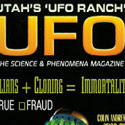
News Anchor's
UFO experience
My Favorite Martian
Article by M. Wendt
Robert Urich
Spirit Magazine
The Healers Magazine
Entertainment Tonight
Magazine for Cleveland
- News Anchor's UFO Experience by Margaret Wendt
- My Favorite Martian by Margaret Wendt
- Looking for Love by Margaret Wendt
- God + Faith by Margaret Wendt
- Thoms Edison's Paranormal Personality by Margaret Wendt
- Margaret and Joel
- Who was Hayim Solomon?
- Nevins Rules by Julie Salamon
- Psychic portraits of the Bangs Sisters
- Psychics, Mediums, and Rock N Roll
- The Ghosts on Moaning Mountain
- The Spiritual Candle
- Thomas Edison's Paranormal Personality by Margaret Wendt
- Margaret Wendt and Joel Martin's New Book
In fallout from crisis, rethinking risk and human judgment by Lynnley Browning
Wednesday, November 18, 2008
NEW YORK: Call in the philosophers, call the psychologists. The idea of risk, the most fundamental concept in the insurance industry, is undergoing its most rigorous analysis in decades.
As the financial crisis sweeps Wall Street and Europe, big insurers are scrambling to unearth flaws in their core assumptions about the chances for financial outcomes and to devise new ways to cope with uncertainty and "slippery slopes," both for themselves and the companies that buy their products.
"With this crisis, everybody is reevaluating the concept of risk management," said Richard Phillips, a professor of risk management and insurance at Georgia State University, which has a leading program for insurance studies.
The scrutiny goes beyond a dissection of the complex mathematical models created by financial engineering, particularly those behind credit default swaps, the $63trilliondollar market of insurancelike products that nearly bankrupted American International Group, caused steep losses at MBIA and Ambac, and has upset banks from Seattle to Amsterdam.
Rather, the rethinking "is focusing on the overreliance on models," said Carol Fox of the Risk and Insurance Management Society, a trade group.
Because nearly all riskmanagement models failed to predict or protect against the crisis, Fox said, insurers will increasingly view risk "more as a function of behavior than of models."
Going forward, she said, insurers will use models "as a point of information, but it won't drive risk tolerance" or the appetite for making financial and other bets.
Although both rely on historical data, the actuarial models behind life, property and casualty insurance the industry's stock in trade are not the same as those behind complex derivatives.
So the rethinking means considering the role of financial models in a company's overall operations, and whether those models fail to consider, for example, the risk of collateral calls or writedowns on the company's balance sheet both missed by AIG.
"People have been managing the wrong risks they have been taking microrisks rather than macrorisks," said Peter Bernstein, a historian and the author of "Against the Odds: The Remarkable Story of Risk."
"They weren't thinking about how the degree of risk in the system might be changing. They weren't thinking beyond their own models. Risk management is about making choices, not preventing losses. I don't think chief risk officers were asking that question."
With the exception of AIG, whose highflying London unit, AIG Financial Products, dived deeply into the derivatives business, insurers have not suffered losses comparable to those on the rest of Wall Street, where the carnage includes the collapse of Bear Stearns and Lehman Brothers.
But in a world of blurring boundaries between banks and insurers in interconnected markets, in which insurers buy and sell derivatives and manage investments and retirement funds that dip into derivatives, insurers are only relatively insulated.
As go their biggest customers large companies and national and municipal governments so go the insurers.
In fallout from crisis, rethinking risk and human judgment Print Version International Herald Tr... Page 2 of 3
Insurance executives say the one thing the financial crisis has made clear is that risk, and how one deals with it, can mean wildly different things to different companies, from gamble, hazard or chance to threat, possibility or opportunity.
It can be a bucket of nasty things to be avoided, or a daring play. Some companies AIG, for example found it too risky to avoid the big profits trading mortgagebacked securities in a soaring market, and dived in head first, while others determined that such bets would undermine their operational risk, or business functioning.
Despite the vagueness of the concept, the insurance industry in recent years spawned a cottage industry of specialists and consultants offering advice on every type of risk under the sun: credit risk, liquidity risk, market risk, legal risk, catastrophe risk, regulatory risk, political risk, compliance risk and reputational risk, to name a few.
It didn't help matters that until the crisis, the field enjoyed a halo of academic credibility.
"All these rocket scientists with Ph.D.s provided reassurance to decision makers and buyers," said Paul Bracken, a professor of political science at Yale University.
But Robert Merton, the Harvard Business School professor who received the Nobel in economic science in 1997 for inventing a new method to value derivative contracts, said: "It would be a mistake to think the essence of the problem is complex math models that were inadequate. A lot of it is straightforward things, like judgments made to accept ratings. We've got to get these financial engineers and quant types out of the banks and get sensible types in."
Still, there is the human factor. Merton, after all, not only developed the options pricing model that is the most widely used in risk management programs but also served on the board of LongTerm Capital Management, the giant hedge fund that imploded in 1998.
Another case in point: In recent years, risk management came to be viewed by many chief risk officers as complying with laws and regulations, in particular the SarbanesOxley law, the landmark U.S. antifraud legislation passed in 2002 in the wake of corporate scandals.
That was a big mistake, according to many insurance and risk management specialists.
"Our definition of risk became confused with obeying the law," said Bill Sharon, chief executive of Sorms, a riskmanagement consulting firm. "We created an environment where we didn't know what we were doing, but it was legal and making profits."
Now, insurers are increasingly looking at risk management as a process applying not only to the activities of particular divisions but also to bigpicture questions a concept known as enterprise risk management.
John Phelps, the director of business risk solutions at Blue Cross Blue Shield of Florida, said that "the big rethink is, what happened to the 'e'?" as in "enterprise."
After all, said Martin Grace, associate director of the Center for Risk Management and Insurance Research at Georgia State University, "you can have math models, but that doesn't tell you how to manage the firm."
ATTENTION!
It has been brought to our attention that Margaret is being portrayed as a psychic on $1.99 sites. These sites are doing so without Margaret's permission. Margaret has not claimed she is a psychic. - MW









